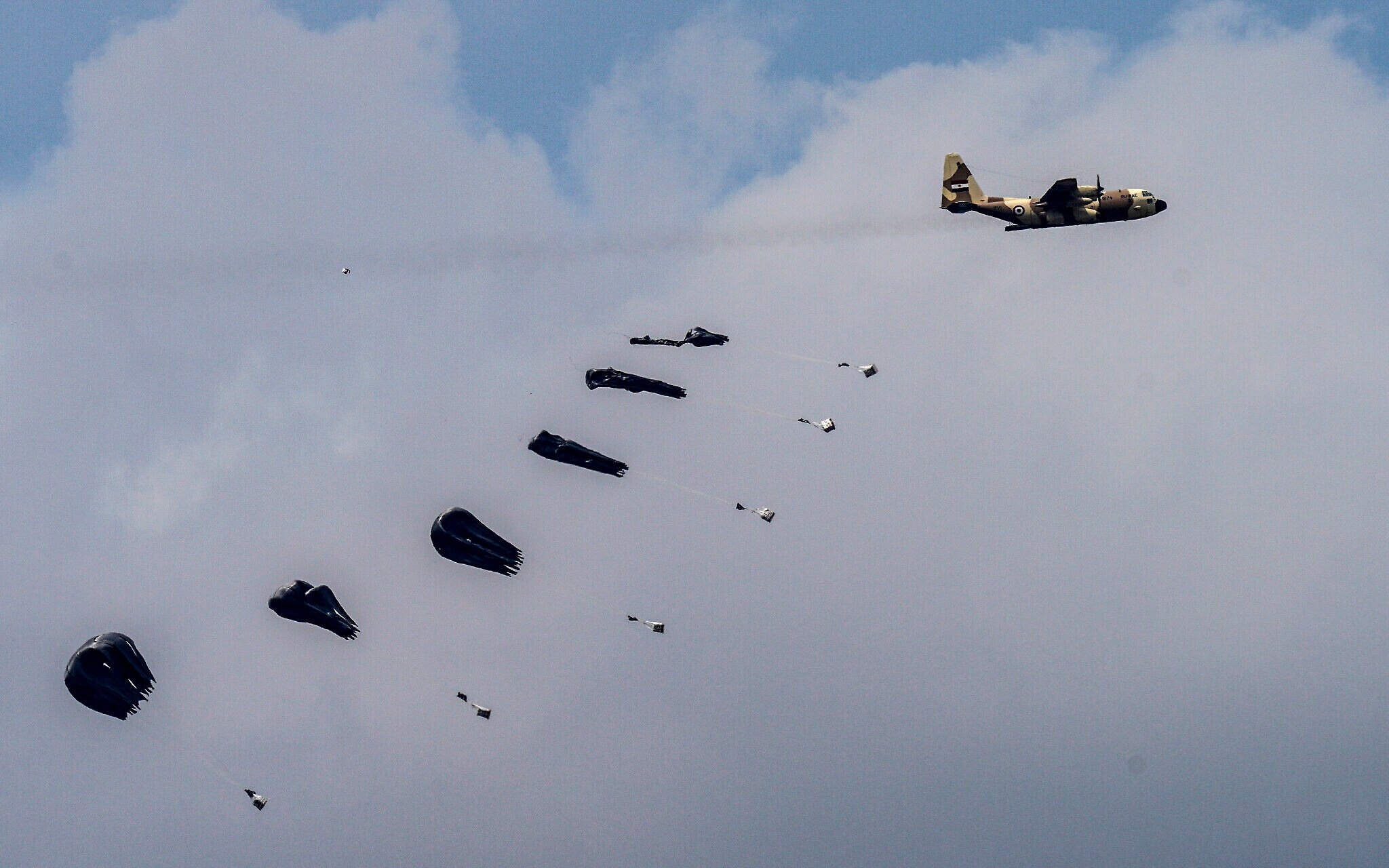Israel is set to allow Jordan and the United Arab Emirates (UAE) to resume humanitarian airdrops of aid supplies into the Gaza Strip, continuing efforts to alleviate the severe humanitarian crisis in the region.
This decision was confirmed by Israel’s Coordinator of Government Activities in the Territories (COGAT), which oversees coordination between Israel and the Palestinian territories.
According to officials, the airdrops will be coordinated with the Israel Defense Forces (IDF) to ensure security and smooth operations.
Jordan is expected to initiate the first airdrop imminently, possibly even on the day of the announcement, followed by the UAE’s involvement.
This marks a resumption of airdrop activities that had previously been carried out in the last year during critical phases of the conflict.
Last year, the United States military had also participated alongside Jordan, Egypt, and France to deliver tens of thousands of meals via airdrops in northern Gaza.
Although there was a tragic malfunction in March 2024 that resulted in the deaths of five Palestinians during one such mission.
These past incidents underscore the complexity and risks involved in airdropping aid in contested and militarized zones.
The renewed permission reflects a recognition by Israel of the dire humanitarian conditions in Gaza.
In Gaza, access to food, medical supplies, and other essentials has been severely restricted due to ongoing hostilities and blockades.
The humanitarian situation has deteriorated rapidly, with the United Nations and other international agencies warning about rising malnutrition and the collapse of basic services.
For example, one UN agency reported that one in five children in Gaza City is suffering from malnutrition, a figure that continues to rise, highlighting the urgent need for sustained aid deliveries.
Humanitarian groups have persistently lobbied Israel to allow increased and uninterrupted aid access to Gaza.
Aid convoys and deliveries have faced logistical and security hurdles.
On the other hand, the resumption of airdrops by trusted regional actors like Jordan and the UAE is seen as a vital way to circumvent ground-level obstacles and rapidly deliver essential supplies.
The involvement of Jordan and the UAE also underscores the role of regional cooperation in addressing one of the most pressing crises in the Middle East.
This move is occurring amid wider diplomatic activities and tensions, including negotiations and incidents involving various stakeholders.
Notably, there have been diplomatic strains, such as reports of discord involving the Israeli ambassador to the UAE, reflecting the broader complexities within the region.
Meanwhile, on the international front, there has been controversy surrounding a recent decision by France to formally recognize a Palestinian state, a move criticized by Israeli and U.S. officials who argue it might hinder peace prospects.
Despite the political challenges surrounding the conflict, the priority remains the humanitarian imperative to prevent further suffering in Gaza.
The renewed authorization for Jordan and the UAE to conduct humanitarian airdrops is intended to contribute to alleviating the immediate food and supply shortages facing millions of Gazans.
Through these coordinated efforts, Israel aims to maintain control over security concerns while permitting carefully supervised aid deliveries in cooperation with trusted regional partners.
In summary, Israel’s decision to allow Jordan and the UAE to resume humanitarian air supply missions to Gaza represents a critical, pragmatic step towards addressing the worsening humanitarian crisis.
It builds on previous efforts to deliver aid through airdrops, hoping to mitigate severe shortages of food and essentials.
Coordinated closely with Israel’s military authorities, these operations seek to navigate both security imperatives and humanitarian needs, providing some relief to a trapped and vulnerable population amidst ongoing conflict and blockades.
The involvement of Jordan and the UAE highlights the importance of regional collaboration in tackling humanitarian emergencies in this volatile region.
This development is welcomed by aid agencies and international observers who stress the necessity of uninterrupted and increased assistance flows to Gaza.
This is even as wider political and diplomatic conflicts persist around the Israeli-Palestinian conflict.







